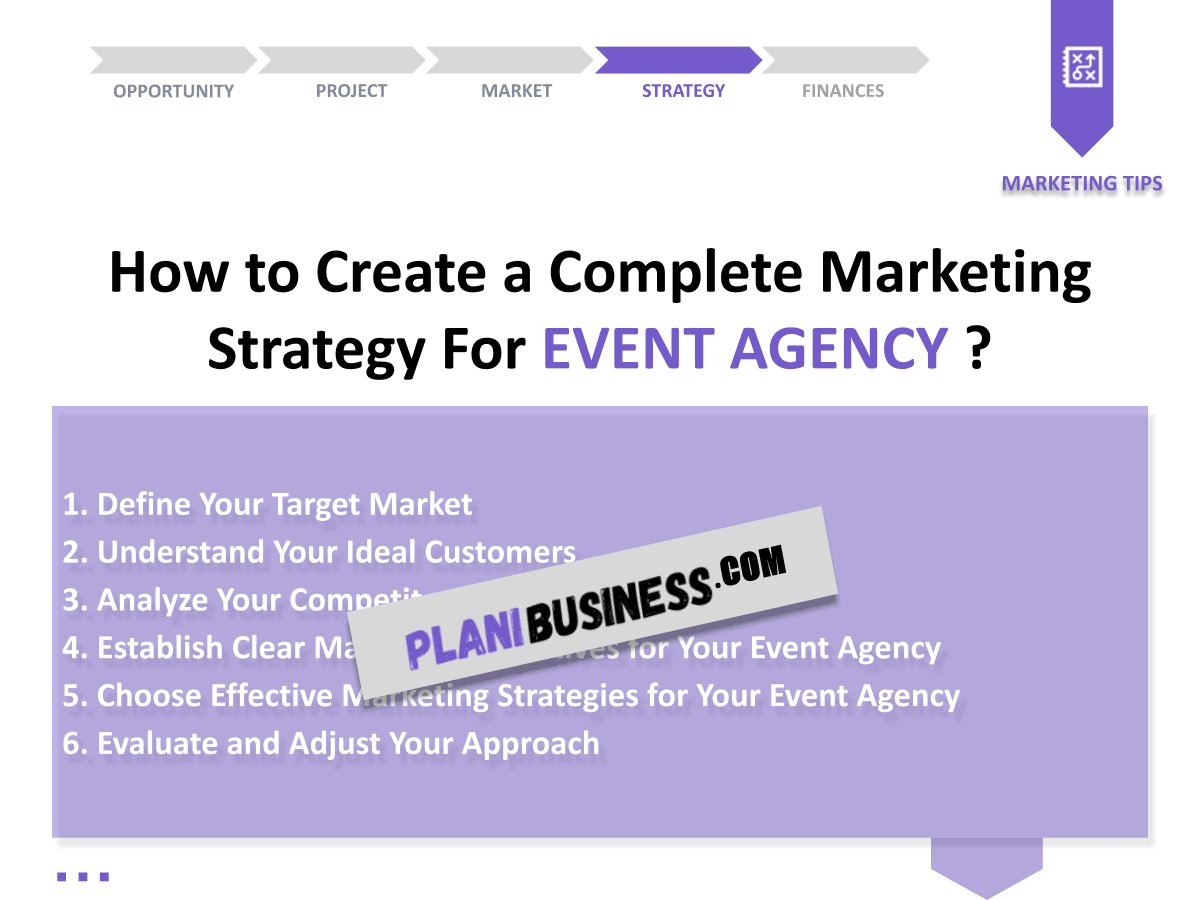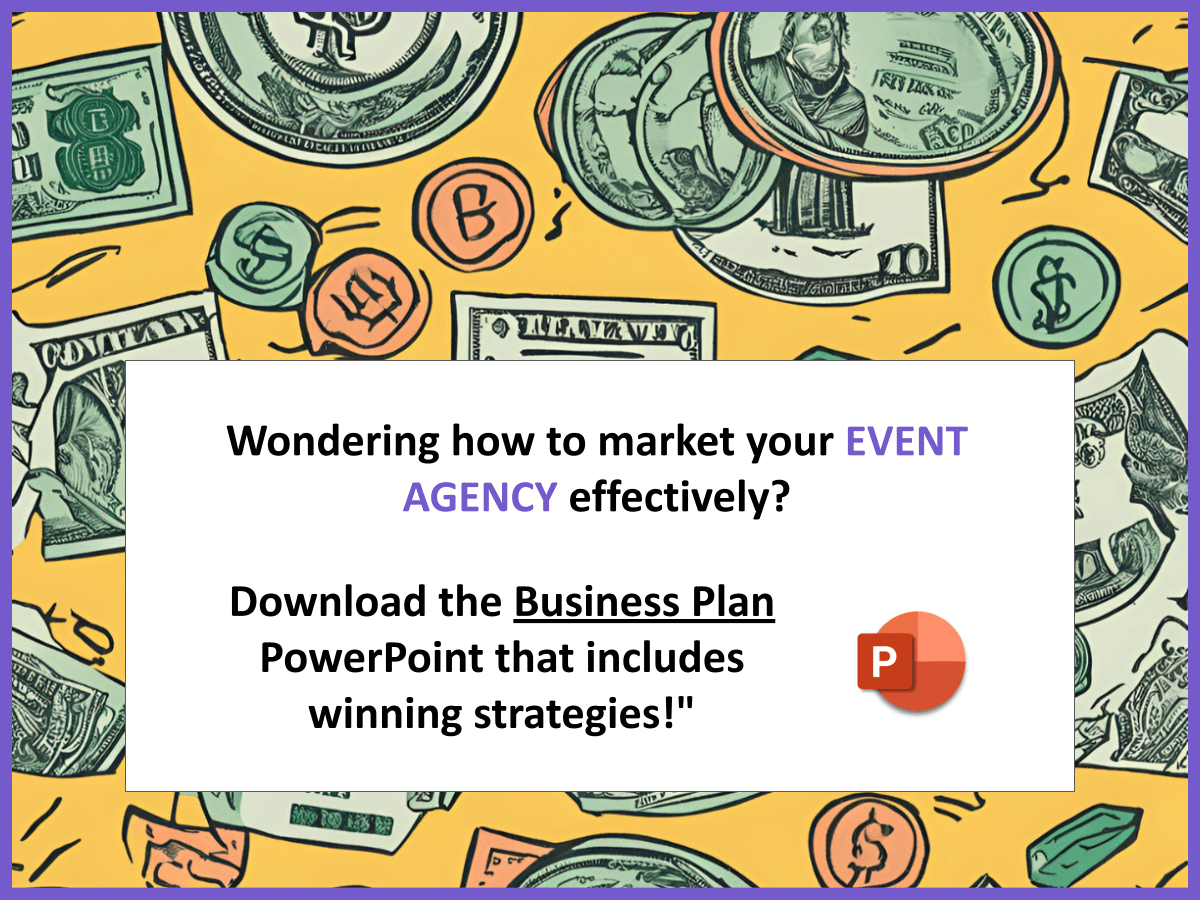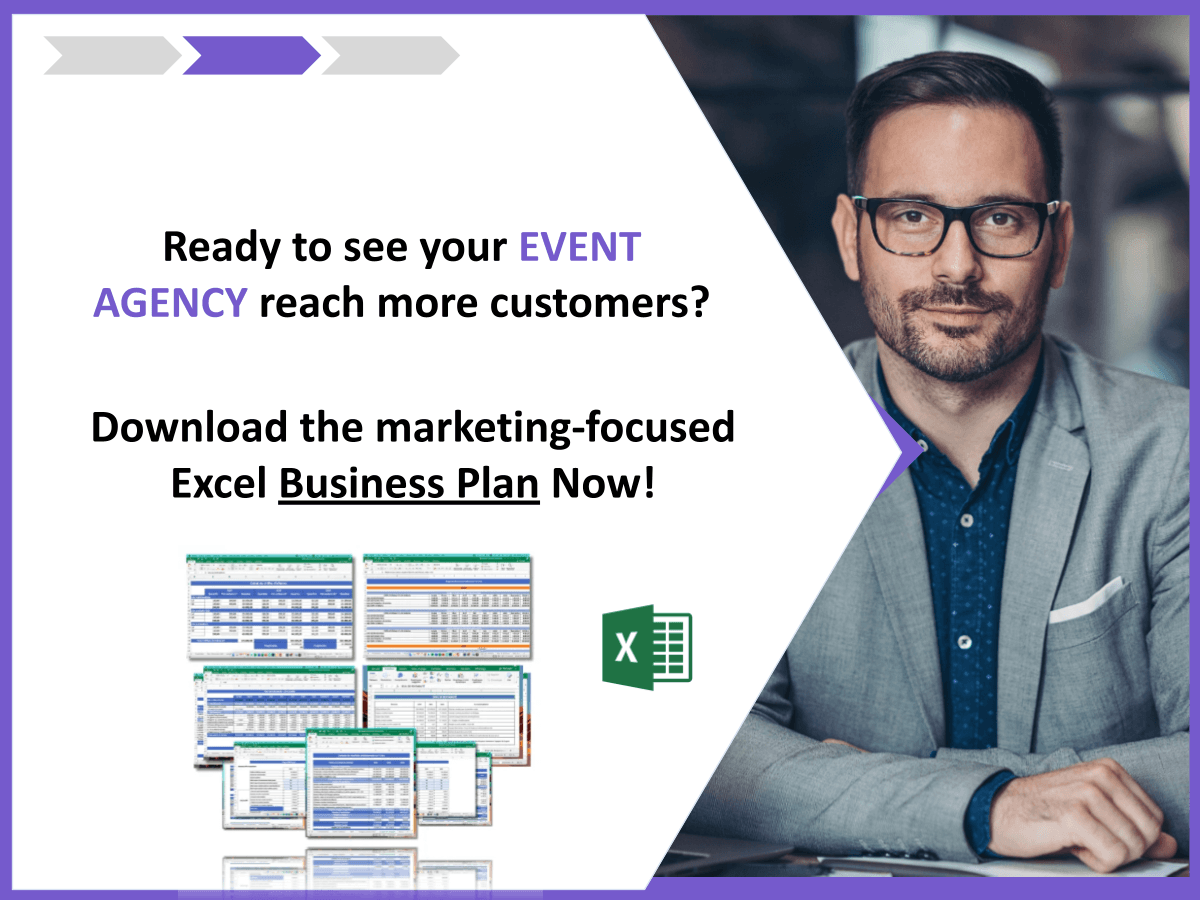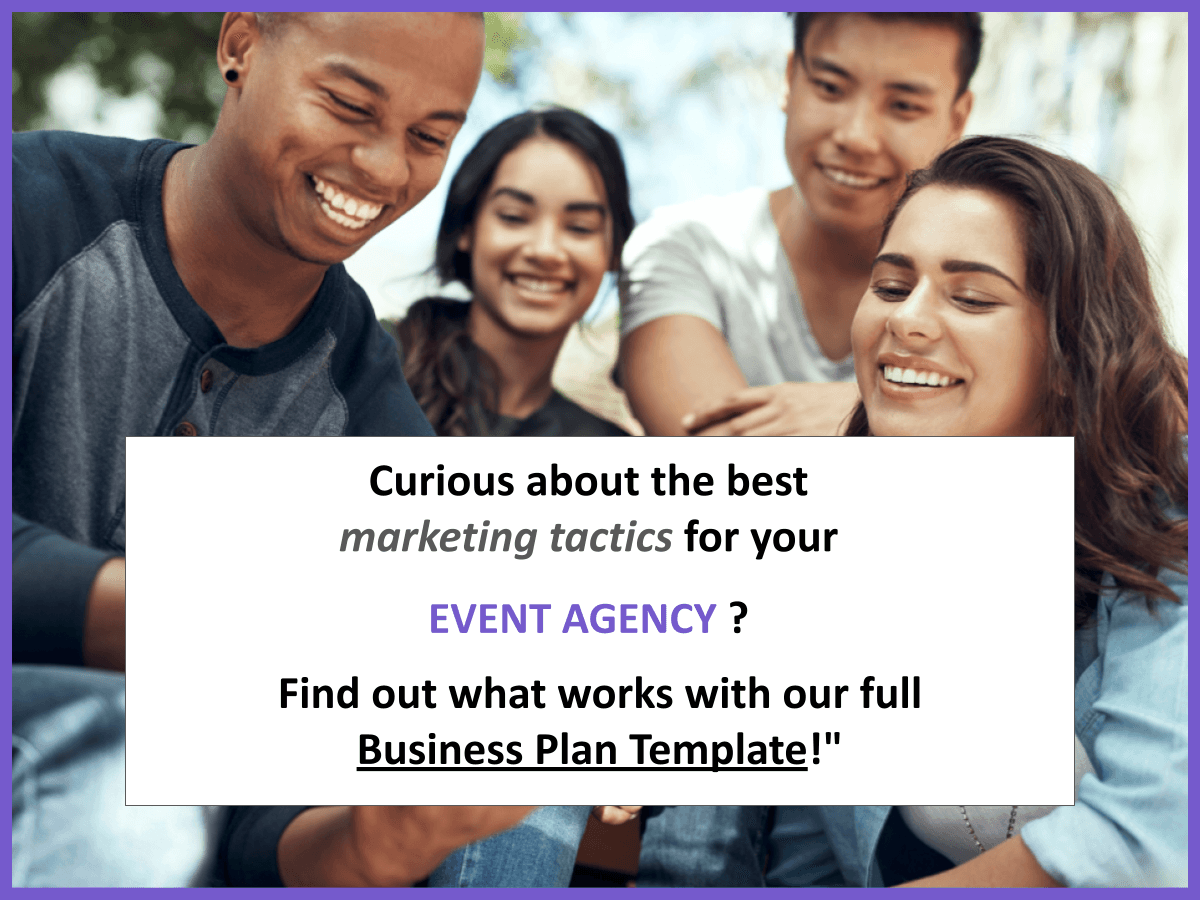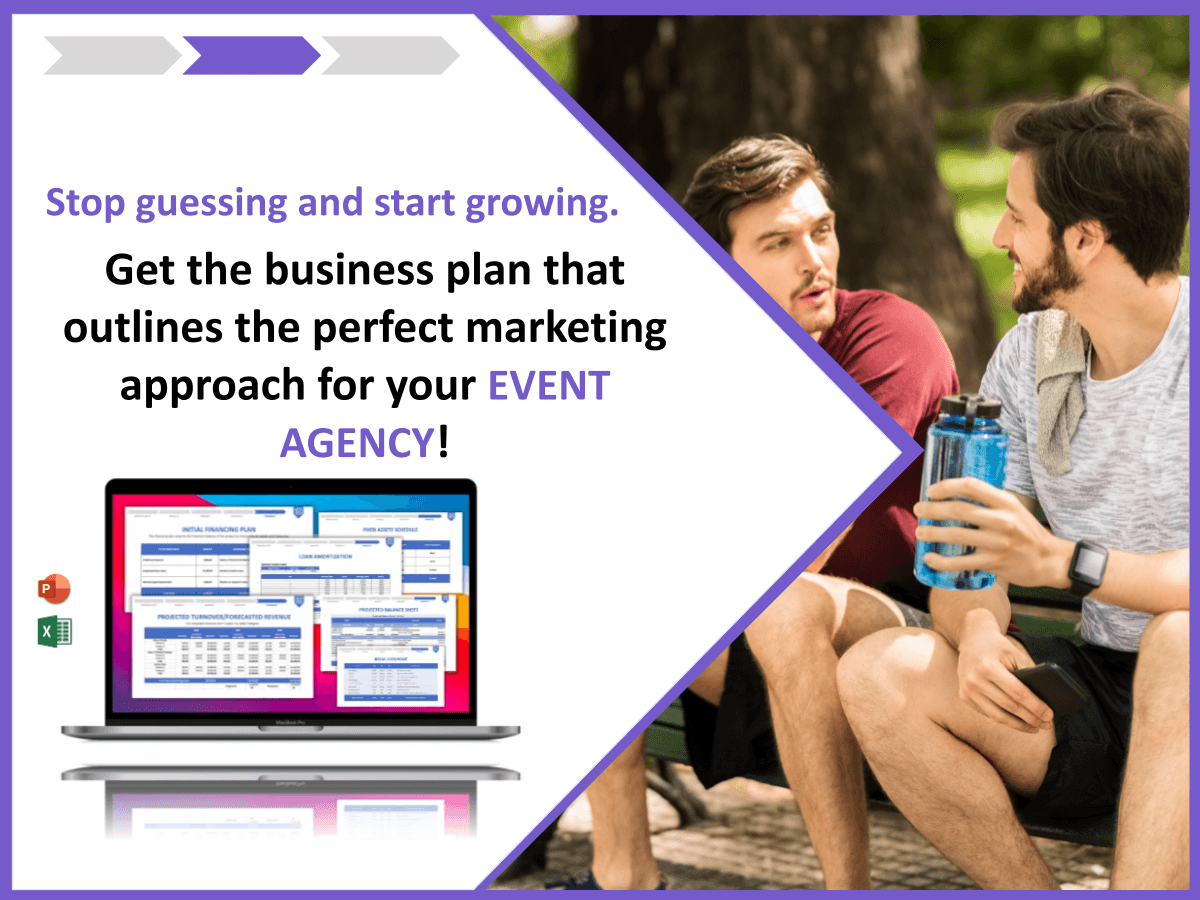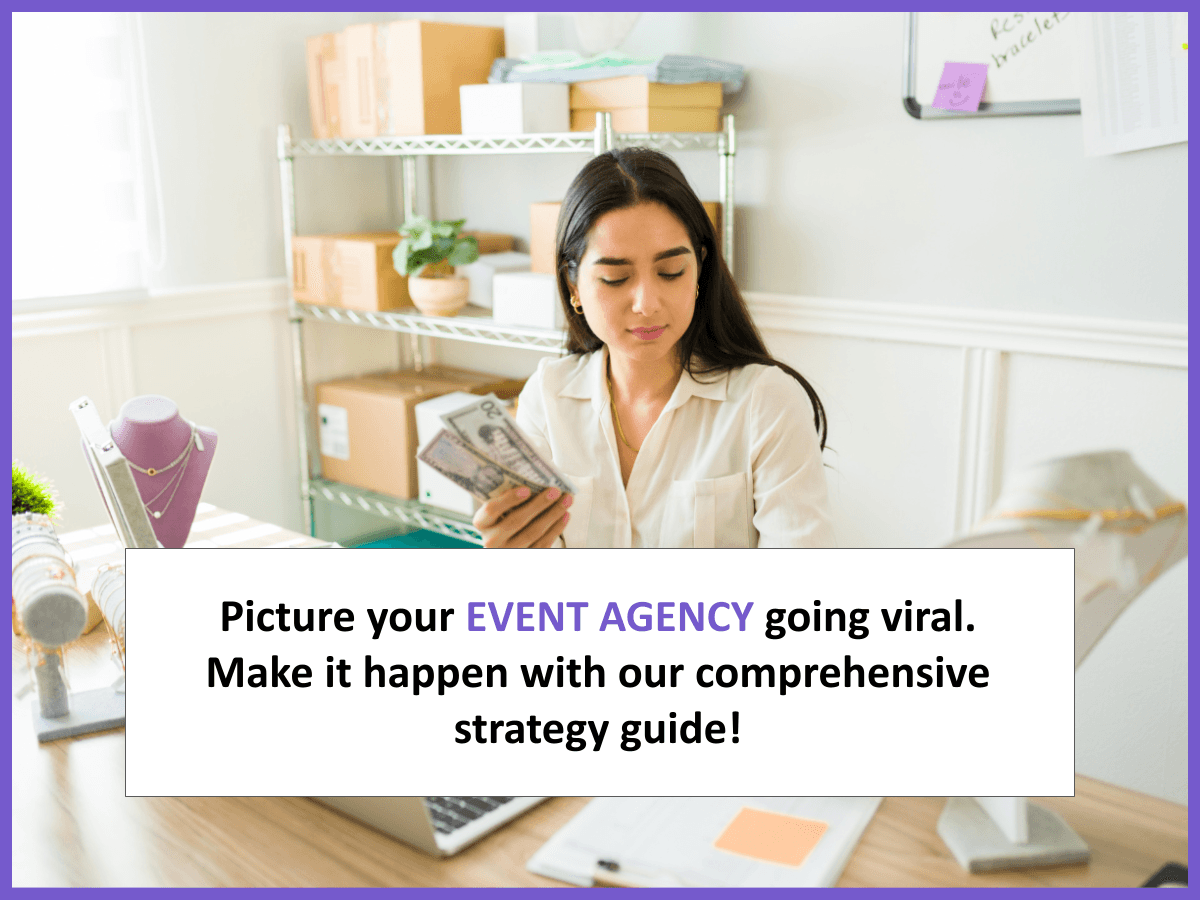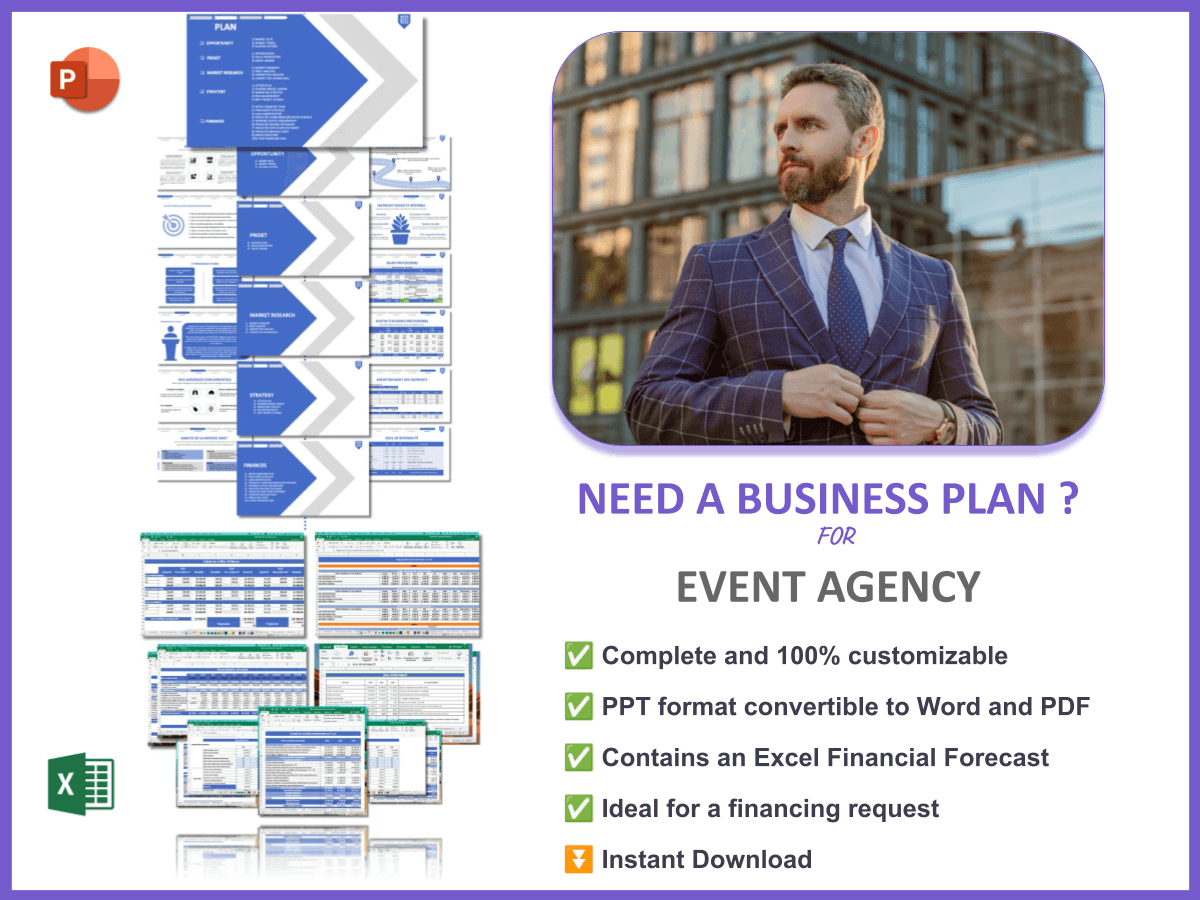Are you ready to take your event agency to the next level? You’re not alone! The event industry is projected to grow by over 10% annually, making it a prime time to strategize your marketing efforts. An Event Agency Marketing Plan is crucial for standing out in a competitive landscape. In this article, we’ll explore how to create a marketing plan that drives results.
1. Define Your Target Market
| Segment | Characteristics | Importance |
|---|---|---|
| Corporate Clients | Companies looking for event planning services | High revenue potential |
| Social Events | Individuals planning weddings, parties, etc. | Steady demand |
Identifying your target market is the first step in creating an Event Agency Marketing Plan. Understanding who your clients are will help tailor your services and marketing efforts. This means not just knowing who they are, but also understanding their needs, preferences, and pain points. For example, corporate clients often prioritize professionalism and reliability, while social event clients may seek creativity and a personal touch.
To effectively define your target market, consider conducting surveys or interviews with past clients. This can provide valuable insights into their experiences and expectations. Additionally, use social media analytics to see who is engaging with your content and tailor your marketing strategies accordingly. Remember, the more specific you can be, the better your marketing efforts will resonate with your audience.
2. Understand Your Ideal Customers
| Customer Type | Needs | Preferred Channels |
|---|---|---|
| Corporate Clients | Professionalism, reliability | Email, LinkedIn |
| Social Clients | Creativity, personal touch | Instagram, Facebook |
Knowing your ideal customers helps in crafting personalized messages and strategies that resonate with them, ensuring your marketing efforts are not wasted. Start by creating customer personas based on demographic and psychographic data. This includes age, gender, location, interests, and spending habits. For instance, corporate clients may prefer formal communication and detailed proposals, while social clients might appreciate a more casual approach with visual content.
Engage with your audience through various platforms. For corporate clients, LinkedIn is an excellent channel to showcase your expertise and connect with decision-makers. On the other hand, social clients are likely to engage more on platforms like Instagram and Facebook, where visuals play a significant role in their decision-making process. Remember to adapt your messaging and content to suit each audience’s preferences for maximum impact.
3. Analyze Your Competitors
| Competitor | Strengths | Weaknesses |
|---|---|---|
| Event Co. | Strong brand presence | Higher pricing |
| Party Planners Inc. | Affordable packages | Limited service range |
Conducting a competitive analysis allows you to pinpoint gaps in the market and identify opportunities for your agency. By understanding what others do well and where they fall short, you can position your agency more effectively. Start by identifying your main competitors in the event planning industry. Look into their marketing strategies, customer reviews, and service offerings.
One effective way to analyze competitors is to create a SWOT analysis (Strengths, Weaknesses, Opportunities, Threats) for each major competitor. This can help you see where your agency can excel. For example, if a competitor has a strong online presence but lacks personalized service, you can capitalize on that by offering tailored experiences. Remember, the goal is not to copy what others are doing but to find your unique selling proposition that sets you apart.
4. Establish Clear Marketing Objectives for Your Event Agency
| Objective | Measurement | Timeframe |
|---|---|---|
| Increase brand awareness | Website traffic, social media engagement | 6 months |
| Generate leads | Number of inquiries | 3 months |
Setting clear marketing objectives ensures you have measurable goals to work towards. It allows you to track progress and make necessary adjustments along the way. Your objectives should be SMART: Specific, Measurable, Achievable, Relevant, and Time-bound. For instance, instead of a vague goal like “increase sales,” aim for “generate 50 new leads within the next 3 months.”
Break down your objectives into actionable steps. For example, to increase brand awareness, you might focus on improving your website SEO, running social media campaigns, and attending industry events. Regularly reviewing your objectives and the results will help you stay on track and adjust your strategies as needed. This ongoing evaluation is key to the success of your Event Agency Marketing Plan.
5. Choose Effective Marketing Strategies for Your Event Agency
| Strategy | Action Steps | Expected Outcome |
|---|---|---|
| Content Marketing | Create a blog, share tips | Increased website traffic |
| Social Media Marketing | Engage with followers | Higher engagement rates |
Your marketing strategies should align with your objectives and the needs of your target market. Choosing the right mix of strategies can significantly impact your success. For example, content marketing is a powerful tool for establishing authority and attracting clients. By creating valuable content, such as blog posts or videos about event planning tips, you can position your agency as a trusted resource.
Another effective strategy is social media marketing. Engaging with your audience on platforms like Instagram and Facebook can enhance brand visibility and foster community. Create visually appealing posts showcasing your events, behind-the-scenes content, and client testimonials. This not only promotes your services but also builds a connection with potential clients. Always remember to tailor your content to suit the platform and audience you are targeting.
6. Evaluate and Adjust Your Approach
| Evaluation Method | Frequency | Purpose |
|---|---|---|
| Analytics Review | Monthly | Measure performance |
| Client Feedback | After each event | Improve services |
Regular evaluation of your marketing efforts is essential. It helps identify what’s working and what isn’t, allowing for timely adjustments to optimize performance. Implement tools like Google Analytics to track your website traffic and social media insights to measure engagement rates. These metrics can provide invaluable information on how well your strategies are performing.
Additionally, gathering client feedback after each event is crucial. This can be done through surveys or direct communication. Understanding your clients’ experiences can reveal areas for improvement and highlight your strengths. Don’t hesitate to make changes based on this feedback; adaptability is key in the dynamic landscape of event planning. Regularly reviewing and adjusting your approach ensures that your Event Agency Marketing Plan remains relevant and effective.
7. Example N°1 of Marketing Plan for a Corporate Event
| Steps | Actions | Details |
|---|---|---|
| 1 | Target Market | Corporate clients in tech industry |
| 2 | Ideal Customers | HR managers, event coordinators |
| 3 | Competitors | Analyze top local agencies |
| 4 | Marketing Objectives | Generate 50 leads in 6 months |
| 5 | Marketing Strategies | LinkedIn ads, webinars |
| 6 | Evaluation | Monthly lead tracking |
This marketing plan focuses on targeting corporate clients in the tech industry. The first step is identifying HR managers and event coordinators as the ideal customers. Understanding their needs for professionalism and reliability will guide your marketing efforts.
To reach this audience, consider using LinkedIn ads and hosting informative webinars that showcase your expertise. These strategies can help generate leads effectively. Additionally, set a clear objective to generate 50 leads within 6 months, and track your progress monthly. This structured approach ensures you stay focused and accountable as you implement your Event Agency Marketing Plan.
8. Example N°2 of Marketing Plan for a Wedding Planner
| Steps | Actions | Details |
|---|---|---|
| 1 | Target Market | Couples planning weddings |
| 2 | Ideal Customers | Engaged couples, wedding parties |
| 3 | Competitors | Local wedding planners |
| 4 | Marketing Objectives | Book 10 weddings per month |
| 5 | Marketing Strategies | Instagram promotions, bridal fairs |
| 6 | Evaluation | Quarterly client satisfaction surveys |
This marketing plan is designed for wedding planners targeting engaged couples. The initial focus is on understanding the needs of these clients, who often seek creativity and a personal touch in their wedding planning process.
Utilizing Instagram promotions and participating in bridal fairs can significantly enhance your visibility among potential clients. Set a measurable objective to book 10 weddings each month, and evaluate your performance through quarterly client satisfaction surveys. This feedback will help you refine your services and ensure that your Event Agency Marketing Plan meets the expectations of your target audience.
9. Example N°3 of Marketing Plan for a Festival Organizer
| Steps | Actions | Details |
|---|---|---|
| 1 | Target Market | Music lovers, families |
| 2 | Ideal Customers | Event-goers, sponsors |
| 3 | Competitors | Other local festivals |
| 4 | Marketing Objectives | Sell 5,000 tickets in advance |
| 5 | Marketing Strategies | Influencer partnerships, social media campaigns |
| 6 | Evaluation | Post-event feedback collection |
This marketing plan focuses on organizing a festival that appeals to music lovers and families. Identifying event-goers and potential sponsors as the ideal customers is crucial. Understanding their interests and what they seek in a festival experience will help you create a memorable event.
To reach your audience effectively, consider forming influencer partnerships to promote your festival and running targeted social media campaigns. A clear objective to sell 5,000 tickets in advance sets a tangible goal for your marketing efforts. After the event, collecting feedback will provide insights into attendee satisfaction and areas for improvement, ensuring your Event Agency Marketing Plan remains dynamic and responsive to customer needs.
10. Example N°4 of Marketing Plan for a Corporate Retreat
| Steps | Actions | Details |
|---|---|---|
| 1 | Target Market | Corporate teams looking for team-building |
| 2 | Ideal Customers | HR and training managers |
| 3 | Competitors | Other retreat organizers |
| 4 | Marketing Objectives | Secure 15 corporate bookings |
| 5 | Marketing Strategies | Email marketing, networking events |
| 6 | Evaluation | Monitor client acquisition rates |
This marketing plan is tailored for a corporate retreat, targeting teams seeking team-building opportunities. Identifying HR and training managers as the ideal customers allows for focused marketing efforts that cater to their specific needs.
Implementing email marketing campaigns and attending networking events can effectively showcase your retreat offerings. Aiming to secure 15 corporate bookings is a clear and achievable objective. Regularly monitoring client acquisition rates will help gauge the effectiveness of your strategies, ensuring your Event Agency Marketing Plan stays aligned with your goals and adapts to market changes.
11. Example N°5 of Marketing Plan for a Non-Profit Event
| Steps | Actions | Details |
|---|---|---|
| 1 | Target Market | Community members, donors |
| 2 | Ideal Customers | Local businesses, philanthropists |
| 3 | Competitors | Other non-profit events |
| 4 | Marketing Objectives | Raise $50,000 |
| 5 | Marketing Strategies | Community outreach, social media |
| 6 | Evaluation | Analyze donation trends |
This marketing plan is crafted for a non-profit event aiming to raise funds for a local cause. The target market includes community members and potential donors who are interested in supporting local initiatives.
Engaging local businesses and philanthropists as your ideal customers is essential for maximizing fundraising efforts. Utilizing community outreach initiatives and social media campaigns can effectively raise awareness and encourage participation. Setting a clear objective to raise $50,000 provides a concrete target to work towards. After the event, analyzing donation trends will help identify what strategies were most effective, allowing for continuous improvement in your Event Agency Marketing Plan.
12. Example N°6 of Marketing Plan for a Trade Show
| Steps | Actions | Details |
|---|---|---|
| 1 | Target Market | Industry professionals, suppliers |
| 2 | Ideal Customers | Exhibitors, attendees |
| 3 | Competitors | Other trade shows |
| 4 | Marketing Objectives | Attract 1,000 attendees |
| 5 | Marketing Strategies | Email campaigns, partnerships |
| 6 | Evaluation | Post-event attendee surveys |
This marketing plan is designed for a trade show targeting industry professionals and suppliers. Identifying exhibitors and attendees as ideal customers helps tailor your marketing strategies to their interests and needs.
To attract a significant number of attendees, consider implementing targeted email campaigns and forming partnerships with relevant industry organizations. Setting a goal to attract 1,000 attendees provides a clear benchmark for success. After the event, conducting post-event surveys will gather valuable feedback, allowing you to refine your approach for future trade shows in your Event Agency Marketing Plan.
13. Example N°7 of Marketing Plan for a Community Festival
| Steps | Actions | Details |
|---|---|---|
| 1 | Target Market | Families, local residents |
| 2 | Ideal Customers | Community members, local businesses |
| 3 | Competitors | Other community events |
| 4 | Marketing Objectives | Increase attendance by 20% |
| 5 | Marketing Strategies | Local media, social media campaigns |
| 6 | Evaluation | Attendance tracking |
This marketing plan focuses on organizing a community festival aimed at families and local residents. Understanding the interests of community members and local businesses is essential for creating a successful event.
Utilizing local media outlets and running targeted social media campaigns can effectively promote the festival and increase awareness. Aiming to increase attendance by 20% sets a clear and achievable goal. After the festival, tracking attendance will provide insights into the effectiveness of your marketing strategies, ensuring your Event Agency Marketing Plan continues to evolve and improve.
Conclusion
Creating a comprehensive Event Agency Marketing Plan is essential for the success of your agency in a competitive market. By understanding your target audience, analyzing your competitors, and setting clear objectives, you can develop effective marketing strategies that drive results. Remember, the key to success is continuous evaluation and adaptation of your approach.
For those looking to take a deeper dive into business planning, I recommend checking out this good business plan template for Event Agency. It can provide you with a solid foundation to build your agency upon. Additionally, if you’re interested in learning more about the industry, be sure to read our articles on How to Set Up an Event Agency? and How to Create a SWOT Analysis for Event Agency. These resources will equip you with valuable insights to help your agency thrive.
FAQ
- What is an Event Agency Marketing Plan?
An Event Agency Marketing Plan is a strategic document that outlines how an event agency will promote its services, identify target markets, and achieve its marketing objectives. - Why is a marketing plan important for an event agency?
A marketing plan is crucial as it provides a roadmap for achieving business goals, helps allocate resources effectively, and enhances brand visibility in a competitive industry. - How do I define my target market for my event agency?
Defining your target market involves researching demographics, interests, and needs of potential clients. Surveys, interviews, and social media insights can provide valuable data. - What marketing strategies work best for event agencies?
Effective strategies include content marketing, social media engagement, influencer partnerships, and email marketing campaigns tailored to specific audiences. - How can I evaluate the success of my marketing efforts?
Success can be measured through metrics such as website traffic, social media engagement, lead generation, and client feedback. Regular analysis of these metrics helps refine strategies. - What are common challenges faced by event agencies?
Common challenges include intense competition, fluctuating demand, budget constraints, and the need to stay updated with industry trends and technologies. - How often should I update my marketing plan?
Your marketing plan should be reviewed and updated at least annually, or more frequently if there are significant changes in the market or your business objectives. - What tools can help in creating a marketing plan?
Tools such as Google Analytics, social media management platforms, and project management software can assist in tracking performance and organizing your marketing efforts. - How important is social media for an event agency?
Social media is extremely important as it allows for direct engagement with potential clients, showcases past events, and builds community around your brand. - Can I create a marketing plan without prior experience?
Yes, you can create a marketing plan by researching best practices, using templates, and seeking advice from industry professionals or resources available online.

